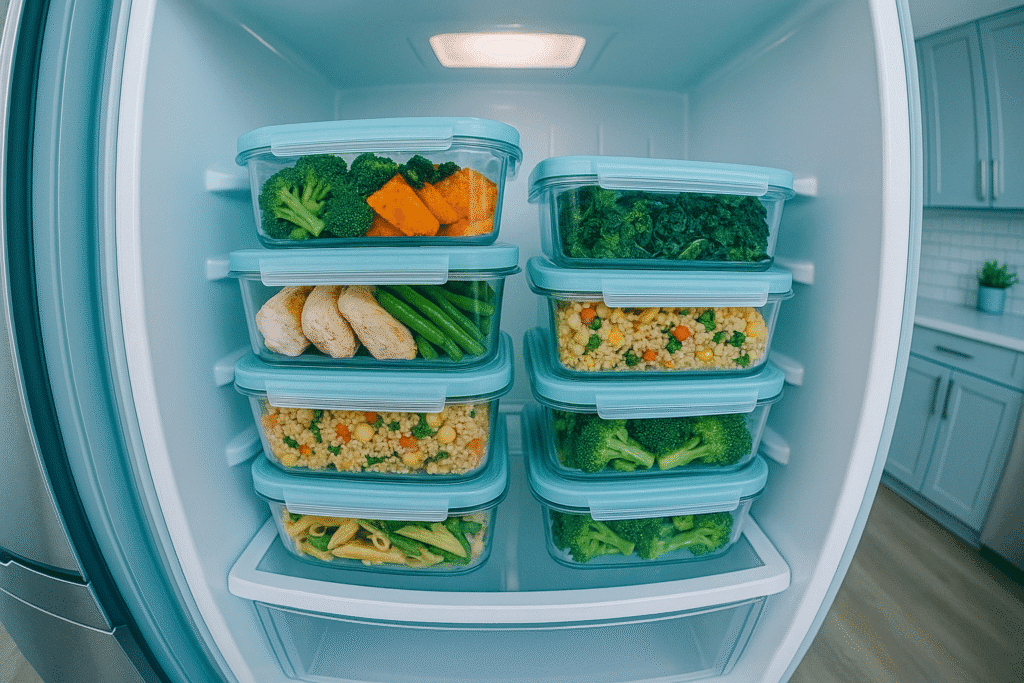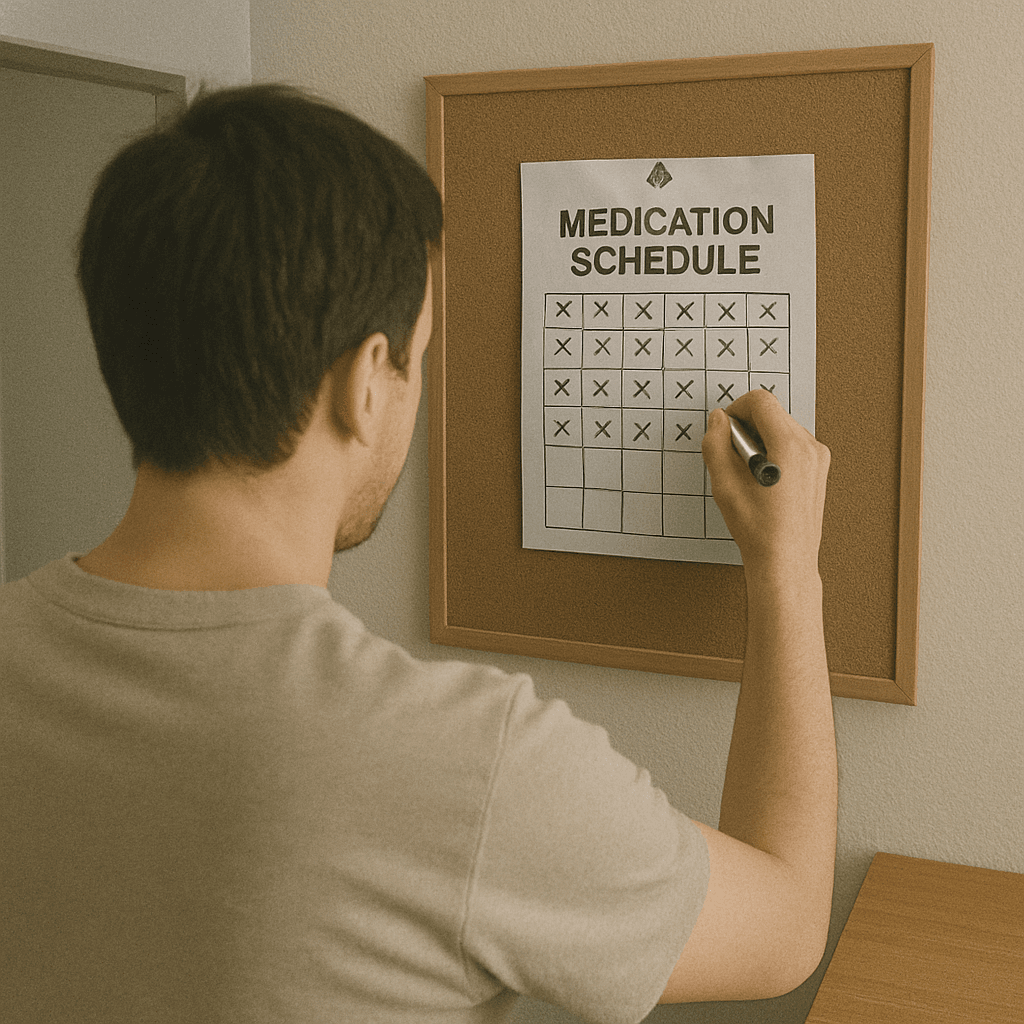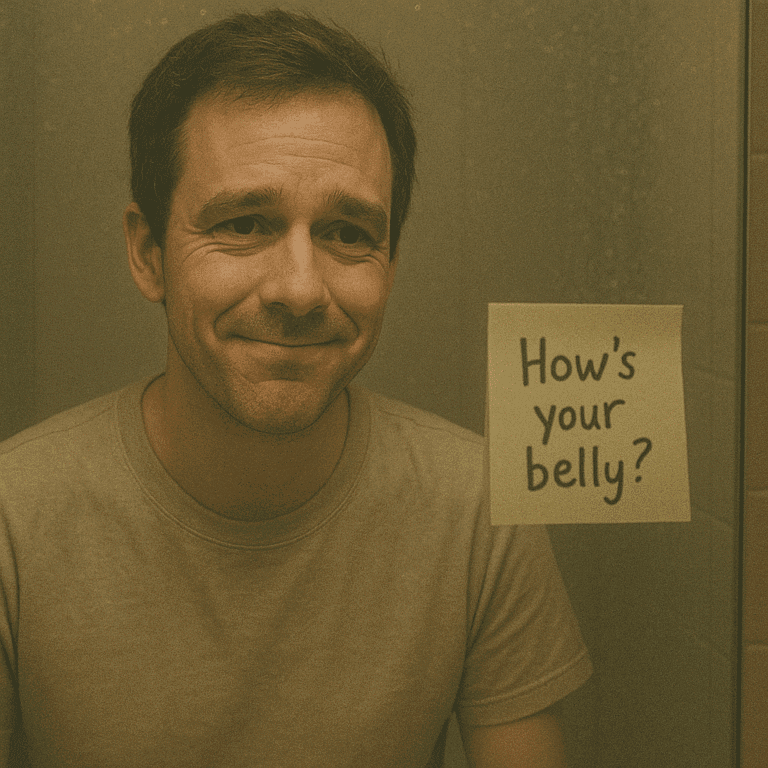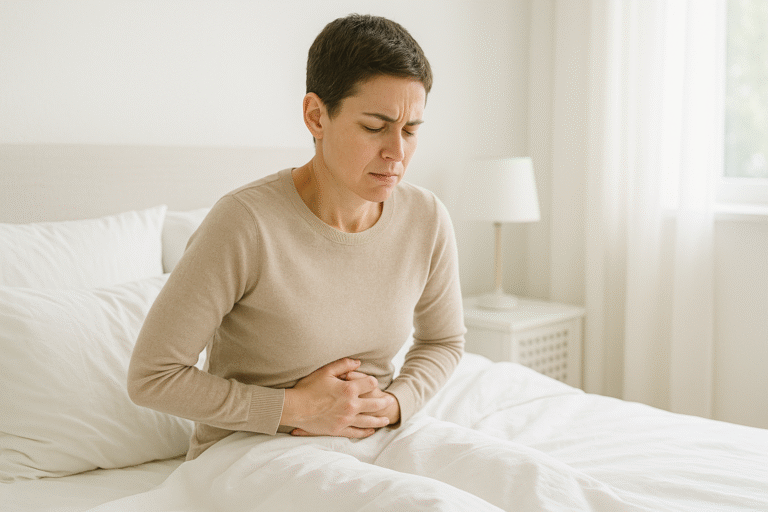You fought hard to reach remission in Crohn’s disease, but now you’re left wondering… what next? The doctors discharge you, the symptoms quieten, and yet the uncertainty lingers.
That’s because remission isn’t a finish line, it’s a fragile middle ground. And without a clear plan, both practical and psychological, you’re stuck in limbo. Worse, you risk slipping back into Crohn’s disease flare-ups without understanding why.
Remission isn’t passive. It’s an opportunity. If anything, it’s the moment to stop obeying orders and start writing your own.
Why remission feels unsettling instead of uplifting
- The aftermath of Crohn’s is rarely neat. When Crohn’s disease remission symptoms calm, you’re left with an odd silence. Not celebration. Ambiguity.
- People expect gratitude. But often, it’s grief in disguise. You grieve for normality, for certainty, even for the structure that illness gave you.
- In fact, uncertainty can feel worse than pain. At least with pain, you know where you stand. With remission, you feel unanchored.
- Being told you’re “better” is like being handed a cake with a missing middle. Looks great. Feels hollow.
Treating remission as a design phase
- Most people treat remission like an off switch. I prefer to think of it as a reset button.
- This isn’t recovery mode. It’s building mode. You have rare leverage to build habits that support long-term management of Crohn’s.
- Don’t just coast. Design. Structure routines that support gut health and Crohn’s stability.
- Words matter. “I’m in remission” sounds like you’re waiting for trouble. “I’m building stability” puts you back in charge.
Tiny habits, not heroic plans
- You don’t need grand schemes. You need habits that are so easy they’re boring. That’s how they stick.
- Boil the kettle? Brew gut-friendly tea. Done.
- Do a quick fridge scan on Sundays. Plan three meals that won’t bite back. Think of it as a diet for Crohn’s remission.
- Keep a loo log. Yes, really. You learn what your body’s up to before it throws a tantrum.
- We all take pride in what we build. That’s why we love flat-pack furniture despite the hex keys. Apply the same idea to your routines. Build them, and you’ll want to keep them.

Some tricks I’ve seen work
- Weekly check-ins with a friend who understands
- A calendar nudge titled “How’s your belly, mate?”
- A small group chat where you can share meals, not memes
Redefining who you are
- Chronic illness messes with identity. It creeps into how you introduce yourself, how you plan your day, how you feel about control.
- So when the illness retreats, even temporarily, it leaves a gap. That gap is yours to fill. But with what?
- One person told me, “I used to say I was ‘a Crohn’s sufferer.’ Now I say I’m a tactician.”
- Another started going to comedy nights again. She took aisle seats, brought her own snacks, and left early. Not because she was afraid. Because she had a plan.
Support isn’t just for bad days
- Weirdly, we only think we deserve help when things are falling apart. Remission? That’s when you need scaffolding most.
- You don’t need a crisis to justify therapy. Or a group chat. Or a walk with someone who just nods and says, “Yeah, I get that.”
- Build rituals that feel boring. Boring is brilliant. Boring keeps you out of A&E.
- Try:
- A low-key support forum that isn’t all drama
- A scheduled mental health appointment you treat like a dentist visit
- A walking buddy who doesn’t talk unless you want to
Track what matters to you
- Doctors love metrics. Blood tests, scans, scopes. All good. But not the full picture.
- Your own dashboard should include things like:
- How spontaneous your week was
- How tired you felt after lunch
- How many times you said no to things you actually wanted to do
- These are not symptoms. They’re signals. They help you track early Crohn’s disease relapse signs.
- Use them to spot trends early. If something dips, speak up. Even if your last test was “normal.”
Medication, lifestyle and stress
- Medication for Crohn’s remission varies. For some, it’s maintenance meds. For others, it’s nothing for now.
- Either way, skipping doses or missing reviews is like playing Jenga with wet blocks. Even when you feel fine, stick to the plan.
- Don’t forget stress and Crohn’s go together like oil and fire. Manage stress actively, not reactively.
- Small lifestyle changes for Crohn’s disease work better than sweeping resolutions:
- Get outside before noon
- Avoid ultra-processed snacks
- Protect your bedtime like it’s a spa appointment

Final thought
Remission in Crohn’s disease isn’t the finish line. It’s the architect’s table. It’s where you sketch, tweak, and build. Not for perfection. For stability. For agency. For a life that bends around your needs without breaking.
Key takeaways
- Treat remission as the start of the work, not the end
- Build tiny habits that are so boring they become brilliant
- Identity matters – shift it from fragile to intentional
- Seek support while you’re well, not just when you’re desperate
- Track metrics that actually match your experience
- Stick to medication plans even when you feel fine
- Don’t underestimate how stress affects Crohn’s
- Make small, lasting lifestyle changes for Crohn’s disease
Common questions about remission in Crohn’s disease
It means your symptoms have calmed down. Tests might show no inflammation. But it doesn’t always mean you feel “normal.”
Completely. You’re adjusting to a state with no map. That’s weird for anyone. Don’t beat yourself up.
Not with perfection. With patterns. Find small, stable routines that reduce triggers and support gut health and Crohn’s.
You can live thoughtfully. That might mean planning more. But it also means freedom, once you find your rhythm.
Yes. Feeling fine doesn’t mean you stop checking in. Stay ahead of problems, not behind them.
There isn’t a one-size-fits-all plan, but many find success with low-fibre, low-fat, or anti-inflammatory diets. Keep a food diary and avoid common triggers.





